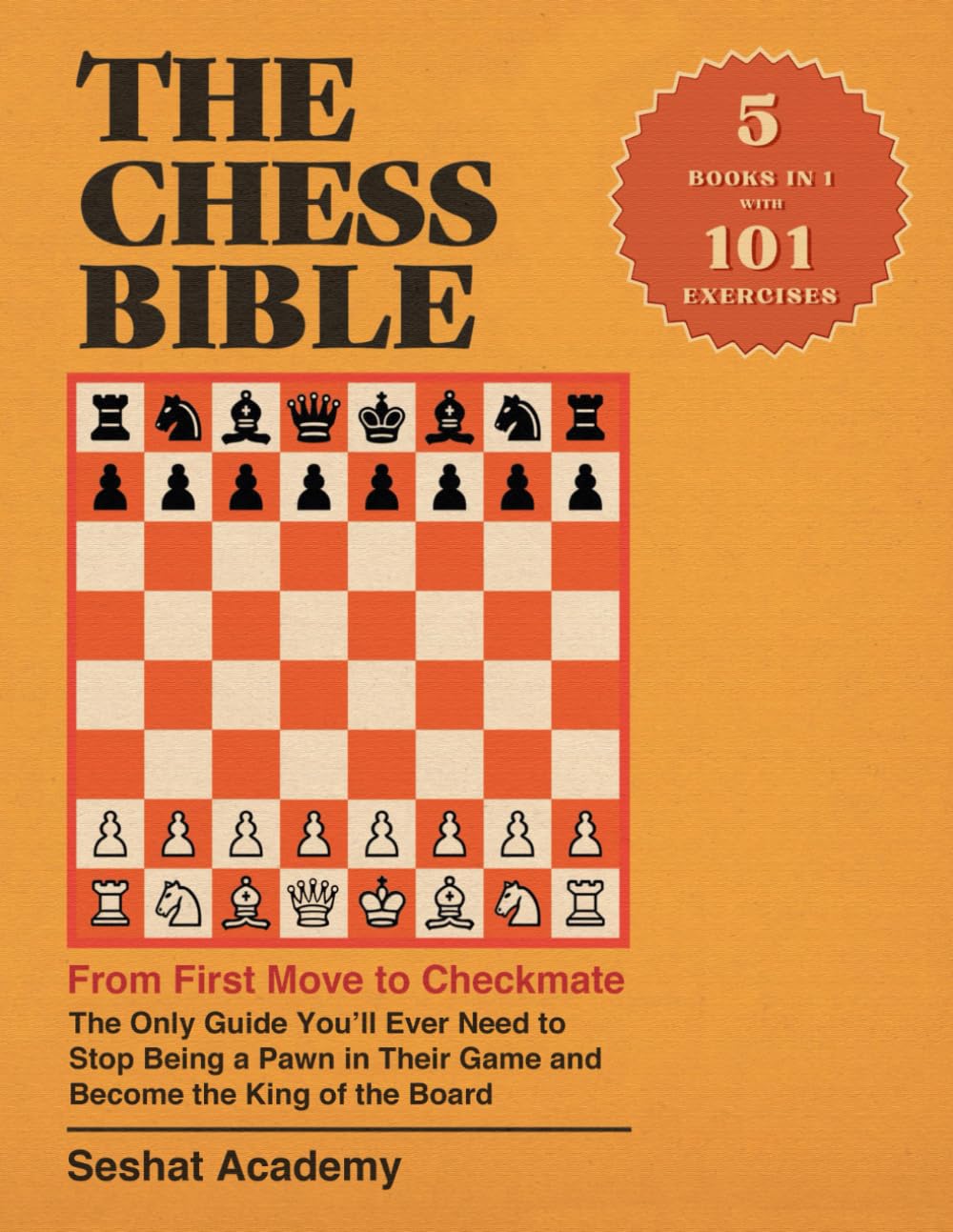Chess The Ultimate Game Of Strategy
If you ask any professional chess player how they feel about the game, they will tell you countless amazing things, and you will detect their deeply entrenched passion for chess. However, if you ask them about their opponent's, they will most likely speak about how they can beat them and prove to be victorious than their competitor; not as optimistic!
When engaged in a chess game, competitors are mortal enemies. There is no friendship between chess opponents when they are playing. It can be likened to soldiers from different sides of the battle who might have things in common and get along in real life; however, when it comes time to fight, there is no friendly behavior!
Also, it is worth stating that since your chess opponent is not your intimate confidant yet real rival, you will want to do all you can to best them during your games together. The honing of specific skills of chess sets great players apart from good ones. Such as?
Chess players who are experts at planning and mastering strategy are usually more prepared to win games.
So, without further ado, in today's article, we shall focus on how chess is a game of planning and strategic thinking.
Skills Honed Through Chess
Although games such as UNO, Skip-Bo, and other video games are entertaining, they are, at times, mindless and do not require players to think about things too deeply. Nonetheless, some people prefer when playing games during their spare time: the ability to let loose and be quickly entertained.
On the other end of the spectrum, there are games like chess. While entertaining and enthralling, chess has more of a reputation for being a game of intensity that requires planning and strategy for every single move on the board. It's important to mention that chess is not for the faint of heart for those who want to reach an advanced level.
Nonetheless, where there is no pain, there is no gain! Those who continually practice making their chess abilities more remarkable are slowly honing transferrable skills that may be used throughout various aspects of life. Such as?
The following are some special skills that are developed through playing chess regularly:
- Staying Calm Under Pressure: a fantastic quality or skill to have in life is the ability to remain chill when there are stressful situations all around you. Thankfully, chess teaches players to stay calm under pressure by making timed moves and carefully thinking about what they will do and when. Chess players remain calm because showing anxiety could be viewed as a weakness according to their opponent.
- Patience: while some chess games can be quickly won using three or four carefully planned out movements, most chess matches against accomplished players sometimes have over 40 moves. Patience is required to cautiously calculate, plan, and execute chess movements successfully because any good player knows that carelessness loses matches.
- Sportsmanship: one of the most incredible things that people of all ages can learn is displaying teamwork; therefore, since in chess, there is always a winner, and, at times, you are the loser, it is a brilliant game. Recognizing that you win some and lose some encourages chess players to become more sportsmanlike, which helps them deal with failures that appear later in life.
While we could go on and on about the fantastic skills that chess players hone throughout their playing against themselves, other opponents, or the computer, the previously mentioned skills are unanimously adored.
Are there are other abilities honed through chess? Absolutely! Since chess is a game of planning and strategic thinking, we shall focus on how these abilities are honed in the following two subheadings.
It's worth mentioning that in some specific situations, chess helps mathematics students with their logical thinking and problem-solving.
How is Chess a Game of Strategy
Of all things chess is known for, it is probably most infamous because it is a game of strategy. Not only is a strategy used from the beginning to the end of a chess match, but the best players must also hone strategic thinking ability to become better.
Put simply, to win a game of chess, you must have a better plan of action than your opponent; that is strategy!
Strategy is so vital to the chess game that chess is known as "chess strategy." Chess strategy is known as evaluating chess positions and setting goals to preparing for long-term or future play. To assess a position strategically, a person must take into consideration the following things:
- The overall value of the pieces on the board,
- The pawn structure,
- The safety of the king safety,
- The position of pieces,
- The control of key squares and groups of squares.
If a seasoned chess player avidly observes the previously mentioned characteristics of the game, they will breeze past their opponent's skills and effectively strategize.
Chess strategy is different from chess tactics that focus merely on chess movements across the board and not so much on the permanent positions established through strategy.
It is essential to state that no chess player is born with the ability to strategize and win against their opponent. Strategy is developed through time and practice. However, you could say that every aspect and movement of chess is a strategy, and a strategically inclined mind is better prepared to deal with challenges across all parts of life.
Through strategy, you try to anticipate the future plays of your opponent and try to prevent them from ruining your endgame.
To become better at strategy, it is essential to focus on how each chess pawns can move and how specific pieces can be used uniquely. Secondly, paying attention to strategic movements in crucial parts of the game, such as the opening, the middlegame, and the endgame, will set you apart from your opponents and highlight you as a strategic player.
What are the Planning Aspects of Chess?
Similar to the core aspect of strategy, planning involves preparation and anticipating what could happen next. Strategy and planning go hand in hand when speaking about chess since one cannot be used or mentioned without the other. Many articles and resources are written about chess often include planning and strategy in the same subheading or paragraphs; however, we thought to do things differently and focus on how planning and strategy are used in chess separately.
Anyway, in chess, when a player has a plan, it can be likened to a set of interconnected actions performed on the board. Every successful chess game with two accomplished opponents boasts a plan. You could say that by having a plan of movements, a player stays alive and prepares themselves for the correct position of pawns; it helps them save time, and, also, energy is preserved.
A plan is set into action in any chess match after you or the opponent has moved one of their pieces and the position has been evaluated.
Depending on how good your competitor is, they may detect your plan and cause it to become disrupted, which could derail your entire game. It's essential to have a plan A and a plan B. Just like in life, while playing chess, you never know when you'll need a backup plan.
Plans in chess are established through strategizing and by having an in-depth knowledge of how the game works. Nonetheless, no matter which chess plan you come up with and decide to use, it should always be realistic and possible to implement.
According to Chess.com, when making a plan, there is a four-step algorithm that may be followed and implemented:
- Evaluate the position,
- Create a plan based on your honest evaluation,
- Consider what your opponent is thinking and decide what should be done,
- Modify the plan by position.
If you need help with a "plan", it is exceptionally suggested to look at past games played on internet sites that show the board and the positions are taken.











Leave a comment